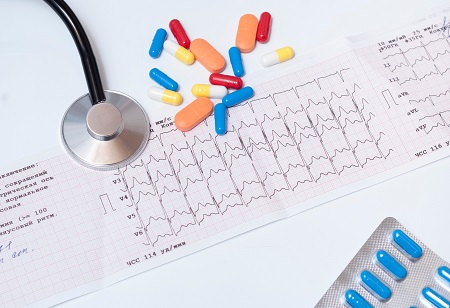Liability For Defective Drugs: 3 Things To Know
 Generally speaking, people trust doctors and other healthcare professionals to provide them with over-the-counter medications and prescription drugs to help them stay healthy. Unfortunately, there are instances in which these medications don't work as intended, resulting in some dangerous side effects that can lead to long-term consequences. These are known as defective drugs.
Generally speaking, people trust doctors and other healthcare professionals to provide them with over-the-counter medications and prescription drugs to help them stay healthy. Unfortunately, there are instances in which these medications don't work as intended, resulting in some dangerous side effects that can lead to long-term consequences. These are known as defective drugs.
When a defective drug injures you, you may be eligible to file a product liability claim arising from defective drugs to seek compensation. However, to have a successful claim, you need to establish the liability of the possible at-fault party or parties with the help of professionals like Houston Texas Super Lawyers or wherever you may be.
Keep reading this article to learn the three things you should know about liability for defective drugs.
1. There Are Different Types Of Drug-Related Product Liability Claim
Being injured by a defective drug can be a frustrating ordeal, especially if you sustained significant economic and non-economic losses. Hence, if you want to protect your rights and interests, you must institute a product liability claim. However, it's essential to understand various drug-related product liability claims. These can include:
- Defectively Manufactured Drugs
This type of claim involves injuries caused by defectively manufactured drugs. This means that errors were made in the manufacturing facility or the pharmacy where the medication is bottled, causing the drugs to be defective. Similarly, mistakes can happen during the labeling process or shipping.
- Drugs With Dangerous Side Effects
This type of claim encompasses those injuries caused by drugs with dangerous side effects. Although the drugs were manufactured properly, they create side effects due to specific reasons. For example, the drugs involved have been out in the market for a long time before it's found out that they can cause a particular type of injury. Also, suppose a victim can prove that the manufacturer was aware of the danger but willfully and intentionally hid it from the public. In that case, they can bring a product liability claim arising from drugs with dangerous side effects.
- Improperly Marketed Drugs
This type of claim involves injured caused by improperly marketed drugs. This means that the manufacturer or other parties involved failed to provide instructions, recommendations, and warnings regarding the proper use of the drugs and their side effects.
2. A Drug-Related Product Liability Claim May Involve Multiple Defendants
Unlike other personal injury cases, a product liability claim arising from defective drugs may include various defendants. These can include:
- Doctor
Generally, the doctors are also part of the chain distribution of the defective drugs involved. For example, if they prescribed a medication that injured you and failed to warn you about its potential side effects, you may file a product liability claim against them.
- Manufacturer
You can name the manufacturer as one of the defendants in your liability claim if there's a showing that they made an error during the manufacturing process. Since most drug manufacturers develop new drugs in the market, they can also be held liable for its adverse side effects.
- Pharmacy
Your pharmacy can also be held liable for a product liability claim since they're considered the final point in the distribution chain of a particular drug. For example, you can establish the pharmacy's liability by showing that the pharmacist's counseling about the use of the drug was the reason you get injured by a defective drug.
- Testing Laboratory
You can include the testing laboratory as a defendant in your claim if there's proof that they did an extensive series of tests before the drug goes its way to the market. But, despite the tests, the drug still caused an injury, resulting in various consequences.
3. Proving The Elements Of A Product Liability Claim Is Crucial For Its Success
Another thing you need to know is that it's crucial to prove the elements of a product liability arising from a defective drug. Doing so can increase your odds of winning your case and getting the proper compensation you're entitled to. Although the elements of a product liability claim vary from state to state, below are the things you should prove to win:
- A defective drug injured you due to a manufacturing error or a failure to warn about its hazards.
- The injury resulted in specific economic and non-economic damages.
- You used the drug as intended but failed to provide you with the appropriate result.
When filing a drug-related product liability claim, proving its elements may not be enough to ensure a winning outcome. You also need to gather pieces of evidence with legal assistance from a lawyer to support your claim and improve your chances of suing the responsible party or parties and getting compensated. Some pieces of evidence you should collect can include:
- The drug in question;
- The original packaging of the drug;
- Medical records;
- Relevant invoices and receipts;
- Recall data and other similar documentation.
Bottom Line
Establishing the liability in a drug-related product liability case can be challenging. There are many things to know and understand to achieve a more favorable outcome for your case. Hence, if a defective drug has injured you, keep the things mentioned above in mind. That way, you'll know what to do to prove the at-fault party or parties' liability and ensure a winning case.




